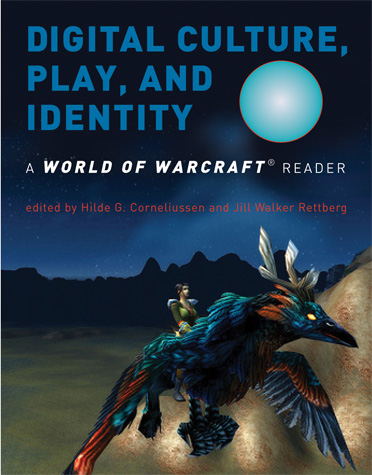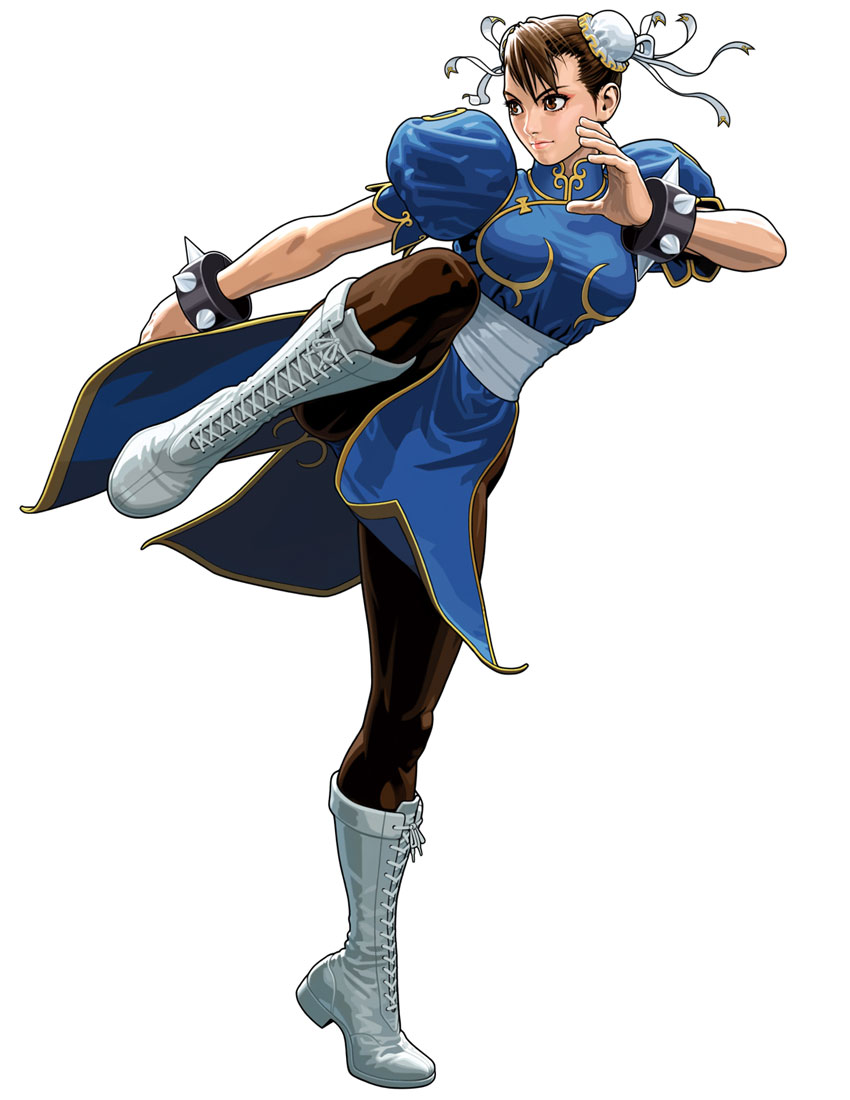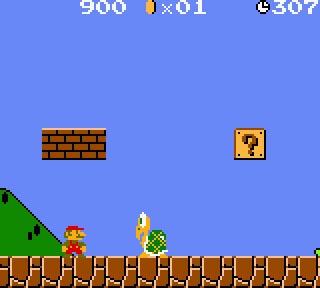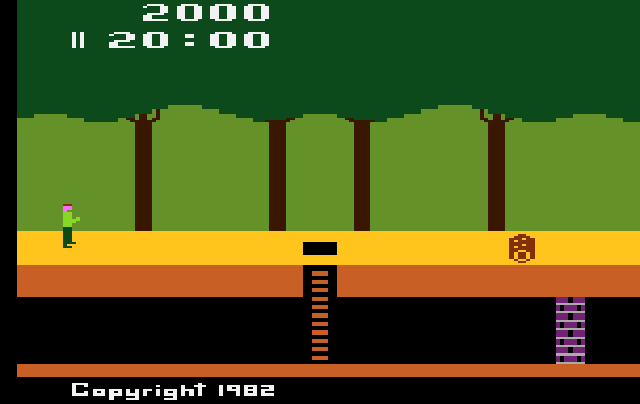John Scalzi recently posted a blog entry entitled “Straight White Male: The Lowest Difficulty Setting There Is,” and in it he aimed at describing how racism and sexism is played by referring to video games, specifically to RPGs. In most video games, players have the option of playing a harder or easier version of the same thing. In a video game like Guitar Hero, for instance, the difficulty level determines how many notes you have to hit and the complexity of the song you have to play. Scalzi uses this idea of a difficulty level to explain the concept of privilege to his mostly white, mostly male, and definitely nerdy audience.
“I’ve been thinking of a way to explain to straight white men how life works for them, without invoking the dreaded word ‘privilege,’ to which they react like vampires being fed a garlic tart at high noon.”
Scalzi’s essay works. He drives home how being a Straight White Male is easier than being a Gay Black Woman, and the inequity seems real by the end of Scalzi’s post. However, as is often the case online, the conversation around the essay was just as interesting as the essay itself, and one repeated question that came out of Scalzi’s blog post might be articulated in this way:
How should class should be understood through video games?
“Imagine life here in the US—or indeed, pretty much anywhere in the Western world—is a massive role playing game, like World of Warcraft except appallingly mundane.” —John Scalzi, “Straight White Male: The Lowest Difficulty Setting There Is,” May, 2012
As a PKD fan and as a Matrix paranoid, I want to believe. That is, I don’t have to imagine that life here in the U.S. is a massive video game like World of Warcraft. Scalzi suggests this possibility and I believe him right away. We really are in a video game, and this game is rigged.
One of the ways it is rigged is precisely as Scalzi suggests—the game is more difficult for people of color, for women, and for gays and lesbians, than it is for the lucky white, male, and straight minority. Also, since we are stuck inside a video game, the world turns out to not be as solid as we once thought. We’re in one of those universes that falls apart. We’re on the Truman Show, inside the Matrix, or maybe stuck playing Halo again and again, forever.
I want to believe this precisely because I’m interested in that question about how we might understand what social class is by looking at video games.
 I recently checked out a book entitled Digital Culture, Play, and Identity from the Portland Central Library, and in this book, Ragnhild Tronstad writes about how identity is formed in a video game. Tronstad quotes a guy named James Newman who wrote for the journal Game Studies.
I recently checked out a book entitled Digital Culture, Play, and Identity from the Portland Central Library, and in this book, Ragnhild Tronstad writes about how identity is formed in a video game. Tronstad quotes a guy named James Newman who wrote for the journal Game Studies.
“Identification with a character’s appearance has little to do with the character’s appearance but connects instead to the way a character functions.”
Tronstad’s argument is that, over time, a character’s appearance becomes linked to her function. For example, when you’re playing the game Street Fighter 2, Chun-Li’s big breasts, small frame, and split skirt is linked with her agility and ability to deliver flying kicks to her opponent’s faces.
 This is actually one of the reason’s Scalzi’s criticism has teeth. By talking about difficulty levels, he’s cleaving appearance from function. He’s pointing out how a person’s race shouldn’t be linked to their difficulty level, and yet it is. But, in a video game there really isn’t such a thing as an identity by itself. There is no Chun Li apart from the character’s appearance and the character’s function. If Chun Li were no longer able to deliver flying kicks she’d stop being Chun Li, and if her appearance was to change drastically (say she was made to look like E Honda) she would also cease to be Chun Li. There is no Chun Li except for this unreasonable linking of appearance to function. It’s not that Chun Li’s identity is being perverted by a conspiracy (some evil genius who sets her difficulty level to easy or difficult) but rather, Chun Li was perverted from the start.
This is actually one of the reason’s Scalzi’s criticism has teeth. By talking about difficulty levels, he’s cleaving appearance from function. He’s pointing out how a person’s race shouldn’t be linked to their difficulty level, and yet it is. But, in a video game there really isn’t such a thing as an identity by itself. There is no Chun Li apart from the character’s appearance and the character’s function. If Chun Li were no longer able to deliver flying kicks she’d stop being Chun Li, and if her appearance was to change drastically (say she was made to look like E Honda) she would also cease to be Chun Li. There is no Chun Li except for this unreasonable linking of appearance to function. It’s not that Chun Li’s identity is being perverted by a conspiracy (some evil genius who sets her difficulty level to easy or difficult) but rather, Chun Li was perverted from the start.
Now, if we’re all video game characters, then the game we’re in is a unique one. For one thing, it’s a game without nonplaying characters.
Think about what playing Dungeons & Dragons would be like if there weren’t NPCs. If you were to spend the night at an Inn there would have to be somebody playing the role of the Inn Keeper. If you ran into goblins and started a battle, or ran into marauders, these would also be other players. Even if you just found gold pieces in a chest, this would mean that some other players had played the characters who mined the gold, another set of players would have had to play the characters who smelted the gold, and so on…
If life is a video game, then most of us have no chance of winning, if by winning you mean succeeding in a quest or saving a princess. Think about this: if our life is Super Mario Bros then some of us are playing the parts of every turtle, every mushroom, that Mario has to kill. Most of us can’t win.
Obviously, Super Mario Bros just wouldn’t work without NPCs, but this life we’re in seems to be the kind of game that operates without them.
 So, to return to the question of how to think about class through video games, what I’m arguing is that class is the way we link appearance to function. It’s the way we populate and play the game. Class is in the background, it’s what has always already happened before you start to play. Class is the game itself.
So, to return to the question of how to think about class through video games, what I’m arguing is that class is the way we link appearance to function. It’s the way we populate and play the game. Class is in the background, it’s what has always already happened before you start to play. Class is the game itself.
“Ever get the feeling that you’re playing some vast and useless game whose goal you don’t know and whose rules you can’t remember? […] You are a gamer whether you like it or not.” —McKenzie Wark, Gamer Theory, 2007
Douglas Lain is a fiction writer, a “pop philosopher” for the popular blog Thought Catalog, and the podcaster behind the Diet Soap Podcast. His most recent book, a novella entitled “Wave of Mutilation,” was published by Fantastic Planet Press (an imprint of Eraserhead) in October of 2011, and his first novel, entitled Billy Moon: 1968 is due out from Tor Books in 2013. You can find him on Facebook and Twitter.










